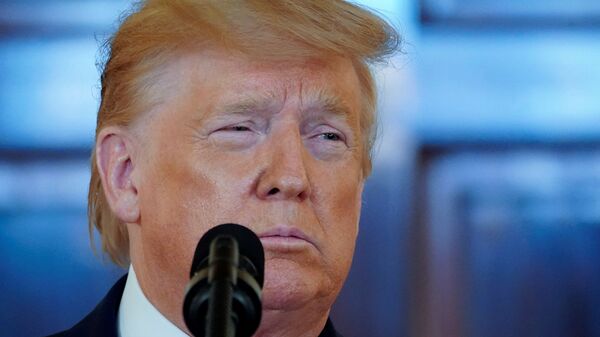Journalist Rania Khalek argued to hosts Brian Becker and John Kiriakou that “Iran really showed its strength” in the region through the Islamic Revolutionary Guard Corps’ missile launches and has triggered a major “setback” for the US within the region as a result.
“There’s so much anger at the US that I think you’re going to see a lot more US retreat,” she said, “which is essentially what Iran and [Quds Force commander General] Qasem Soleimani always wanted. So it’s kind of like, in death he’s accomplishing what he tried to do in life.”
Mike Prysner, the producer of “The Empire Files” and a co-host of the Eyes Left podcast, highlighted the irony in US Secretary of Defense Mark Esper, the ex-vice president of government relations at Raytheon, previously boasting that the US is "not looking to start a war with Iran,” but is “prepared to finish one.”
“Well I haven’t seen the US finish a war in the last 20 years,” he said, noting that “as long as there are US troops [and associates] on the ground, it’s not an end to the Iraq war - it’s just postponing it for some period of time,” and there will continue to be room for situations, such as the recent killing of a US defense contractor, to put the US on the brink of a major war again.
Mazda Majidi, an author, journalist and anti-war activist, detailed that Iranians were “listening with a great deal of worry” regarding possible escalation by the US following the strikes in Iraq and explained that many whom he spoke with after Trump’s speech Wednesday morning were “relieved that there would not be a wide-scale bombing of Iran.”
Speaking of Trump’s address to the US public, former UK Ambassador to Syria Peter Ford told Sputnik that the main takeaway from the US president’s speech is what was not uttered.
“He didn’t announce any retaliation, and he filled the void [with] a lot of blather and his usual boasting,” he said. “And as always, he dragged in his obsession with besting the first black American president,” Barack Obama.
In the same speech, Trump criticizes Obama's plan limiting Iran's nuclear capability then says "we must all work together toward making a deal with Iran that makes the world a safer, and more peaceful place."
— Amee Vanderpool (@girlsreallyrule) January 8, 2020
He pulled out of the deal that achieved that. pic.twitter.com/KEQImbe171
“It seemed like some people had gotten to him and said, ‘You know, this might be bad if Iran cuts off all of the oil and … prices shoot sky high,’” said “Redacted Tonight” host Lee Camp. “Iran has a lot of power, and I think some people might have reminded him of that.”
Likewise, Anya Parampil, a journalist for The Grayzone who hosts the news show “Red Lines,” said that while Trump “tried to use forceful language and appeared to be in control of the situation,” he actually “looked to be a bit rattled” and “slurred his speech at certain points.”
Trump: It will not be tolerated. pic.twitter.com/oj9bqHNTJt
— Keith Boykin (@keithboykin) January 8, 2020
Ben Norton, a journalist with The Grayzone and co-host of the Moderate Rebels podcast, pointed out that while the US claims that no US troops were harmed in the Wednesday morning incident in Iraq, “Iran claims they killed 80 US soldiers, so we don’t know exactly whether or not what the US said is true.”


